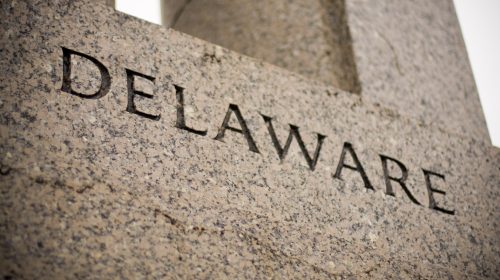Expert Insights
Fentanyl, a synthetic opioid that is 50 times more potent than heroin and 100 times more potent than morphine, is responsible for 82.5% of accidental drug overdoses in the state of Delaware. Considering laboratory testing is the only way to know how much fentanyl is in a pill or powder, the lethal dose of just two milligrams is wreaking havoc on the local community. Consumers of this drug simply have no way to know how much they are ingesting, leaving the state searching for answers to a problem that is on the rise.
~ Lesley Wirth
Top 5 Drug Rehabs in Delaware
Each alcohol and drug rehab in Delaware offers clients a different set of amenities, support programs, and therapies.
Below are the top five addiction treatment centers in Delaware based on the following criteria:
- Offering evidence-based treatment
- Accreditation
- Certifications
- Client testimonials / reviews
Banyan Treatment Centers
Banyan Treatment Center is a five-star treatment center located in Milford, Delaware. Personalized treatment plans are offered through a faith-based, SMART Recovery model of overcoming addiction and mental health challenges.
Banyan Treatment Centers specializes in:
- Medical Detox
- Intensive Inpatient
- Residential
- Partial Hospitalization
- Intensive Outpatient
- Outpatient
- Faith in Recovery
- SMART Recovery
- Specialized Therapy Programs
Treatment programs are supported by:
- Joint Commission Accreditation
- ADA Compliant
- Veteran Ready
Location and contact information:
21 W Clarke Ave Suite 4001
Milford, DE 19963
(302) 291-1821
Net Centers Kirkwood Recovery Center
Net Centers Kirkwood provides mental health, addiction treatment, foster care, residential group care, adoption, juvenile justice services and child welfare services in the Wilmington, Delaware area. As a non-profit entity, Net strives to provide a continuum of care that meets individual, family, and community needs.
Net Centers Kirkwood Recovery Center specializes in:
- Addiction Recovery Services
- Outpatient Treatment
- Mental Health Services
- Child Welfare Services
- Juvenile Justice Services
Treatment programs are supported by:
- The United Way
Location and contact information:
3315 Kirkwood Highway
Wilmington, DE 19808
(302) 691-0140
Addiction Recovery Systems
Addiction Recovery Systems, located in New Castle, Delaware, offers specialized outpatient treatment services to help those struggling with substance use disorder. Harm reduction techniques are implemented when abstinence is not possible to reduce rates of morbidity and mortality.
Addiction Recovery Systems specializes in:
- Medication Management
- Intensive Outpatient Programs (IOPs)
- Outpatient Treatment
- Family Counseling
- DUI Evaluation
- Community Education
- Case Management
Treatment programs are supported by:
- The Commission on Accreditation of Rehabilitation Facilities
Location and contact information:
263 Quigley Boulevard
New Castle, DE19720
(302) 323-9400
SaVida Health
SaVida Health offers opioid and alcohol addiction treatment in Newark and Dover, Delaware. Treatment includes comprehensive medication management, behavioral healthcare, counseling, and ongoing support. Weekly office visits progress to monthly visits over time.
Retreat at Sky Ridge specializes in:
- Medication Assisted Treatment
- Outpatient Addiction Treatment
- Behavioral Healthcare
- Counseling
Location and contact information:
983 South Bradford Street
Dover, DE 19904
(833) 356-4080
Brandywine Counseling and Community Services
Brandywine Counseling and Community Services provide evidenced-based, client-centered care in Newark, Dover, Milford, Georgetown, and New Castle County. They provide education, prevention, early intervention, addiction treatment, and justice-involved services to Delaware residents with a strong dedication to providing hope and community change.
Brandywine Counseling and Community Services specialize in:
- Opioid Treatment
- Outpatient Treatment
- Intensive Outpatient Treatment
- HIV Services
- Education and Community Programs
Treatment programs are supported by:
- The Joint Commission
- Substance Abuse & Mental Health Services Administration
- Delaware Division of Substance Abuse & Mental Health
Location and contact information:
2713 Lancaster Avenue
Wilmington, DE 19805
(302) 656-2348
Who Struggles With Drug Addiction in Delaware?
Data compiled by the Drug Enforcement Agency (DEA) and the Substance Abuse and Mental Health Services Administration (SAMHSA) from 2019 to 2020 shows that:2, 3, 4, 5

Illicit opioids, particularly heroin, are the primary drug threat in the state of Delaware.

120,000 residents were admitted to rehab in 2020.

112,000 Delaware residents needed, but did not receive, treatment for substance use in 2020.

97,000 adults and 4,000 minors reported past-month illicit drug use during 2019 and 2020.
How Much Does Drug Rehab Cost in Delaware?
Delaware is ranked 4th nationwide in terms of addiction treatment affordability, with an average cost of addiction treatment of $53,690.
- Medical detox is the most expensive, with an average cost of $132,365
- Inpatient rehab in Delaware costs an average of $47,378
- Outpatient rehab in Delaware costs and average of $7,872
- Outpatient methadone treatment is the most affordable, with an average cost of $6,995
How to Pay for Rehab in Delaware
As of 2020, there were over 50 rehab facilities across the state of Delaware. These facilities accept several payment methods. Of those facilities, the following numbers reflect how many accept their respective payment methods:
Are There Low-Cost and Free Drug Rehab Options?
If you’re concerned you can’t afford to enroll in a quality program, you have several options for accessing affordable care. Depending on your income and insurance status, you may even be eligible for free addiction treatment.
Several Delaware drug rehabs are working to ensure that anyone who needs help can access it. Currently, 21 addiction recovery centers throughout the state offer free and reduced-cost care for people who cannot pay.4
Can I Finance Addiction Treatment in Delaware?
State-Funded Facilities: Nearly 16,000 people aged 12 and older receive low-cost or free treatment in publicly funded Delaware drug rehabs every year.6 These facilities make addiction services available to residents, regardless of their ability to pay. If you have a low income or are uninsured or underinsured, you may be eligible for low-cost or free care, too. But to qualify, you must meet certain requirements. Most facilities ask that you provide proof of your lack of insurance, as well as proof of income, state residency, and U.S. citizenship.
Scholarships: Some alcohol and drug rehab centers in Delaware offer in-house scholarships, while others partner with charitable foundations that donate scholarships for people with limited resources. To receive this type of financial aid, you must fill out an application, complete an assessment, and provide information about your financial situation.
Sliding-Scale Options: Many facilities and detox centers offer sliding-scale fees, which means you only pay what you can reasonably afford based on your income. If you’re uninsured or underinsured and your financial situation precludes full payment, you’ll likely qualify for reduced-cost or free help.
What Are Levels of Care for Addiction Treatment?
Medical Detox helps you withdraw from drugs and alcohol, keeping you safe and comfortable throughout this trying process. This is usually the first step of the recovery process.
Inpatient rehab is the most intensive and structured form of treatment for alcohol and/or drug misuse. In this type of program, addiction professionals provide 24-hour supervision and care, and you’ll participate in several evidence-based therapies according to your needs.
Partial Hospitalization Programs (PHPs) provide high-level supervision and hospital-based care for several hours each day, up to seven days per week. These programs are typically suitable for people with serious addictions and with unstable co-occurring mental health disorders.
Intensive Outpatient Programs (IOPs) also provide intensive therapy and meet several days per week for several hours each day but not in a hospital setting.
Standard Outpatient programs are the least intensive form of treatment and typically meet just once or twice weekly. Usually, these programs are suitable for people who are far along in recovery and may serve as a form of long-term aftercare.
Aftercare is the final step of the recovery process and is designed to provide you with the tools and support you’ll need to stay sober. Some of the many aftercare options you may have access to include sober-living housing, long-term individual and/or group counseling, support groups like AA or NA, and alumni programs offered by your facility.
Should You Travel for Drug and Alcohol Rehab in Delaware?
 When deciding whether you should enroll in a local treatment center or travel to a drug or alcohol rehab in Delaware, think about whether you can access the type(s) of care you need in your local area. If you can’t, traveling to a Delaware facility may be your best option for getting the level of care you require.
When deciding whether you should enroll in a local treatment center or travel to a drug or alcohol rehab in Delaware, think about whether you can access the type(s) of care you need in your local area. If you can’t, traveling to a Delaware facility may be your best option for getting the level of care you require.
Other factors to consider include:
- Does your insurance cover treatment at any Delaware facilities?
- Do you need to get away from triggering situations or people that you may not be able to avoid at home?
- Do you know anyone in Delaware who can help support you?
- If you’d like to keep your treatment discreet, would enrolling in an out-of-state facility help you do that?
Ultimately, traveling is a personal choice that your unique needs and preferences will dictate.
How Do You Choose an Alcohol or Drug Rehab in Delaware?
Selecting the right rehabilitation facility is a big decision contingent on many factors. As you weigh your options, research each facility thoroughly to determine if it meets your needs. Some factors to consider include:
Type of treatment: Does the facility offer inpatient or outpatient programs? Will you have access to aftercare support? Does it offer medication-assisted treatment (MAT) or dual diagnosis care? What about specialized care for certain demographics, such as LGBTQ+, veterans, teens, etc.?
Amenities: Can you have a private room? If you’ll have roommates, how many can you expect? Will you have access to onsite activities? Would you prefer a luxury environment?
Philosophy: Would you benefit from a program that incorporates spiritual practices or holistic therapies in treatment?
Cost: Does the facility take your insurance? If you need help paying for rehab, does it offer any form of financial assistance?
Detox: Do you need professional withdrawal management? Are you addicted to a substance with dangerous withdrawal like alcohol, benzodiazepines, or opioids?
Location: Is the facility too close to areas that may be triggering? Would you benefit from a program that’s farther away?
Accreditation: Make sure to choose from accredited alcohol and drug rehab centers in Delaware, meaning they have been vetted by organizations like CARF and JCAHO to ensure quality care.
What Are Alcohol and Drug Laws in Delaware?
Delaware Good Samaritan Act: Under Delaware’s Senate Bill 116, people who seek emergency medical assistance for a suspected overdose can be granted immunity from certain drug-related criminal charges. These include possession of controlled substances and paraphernalia, underage drinking, and other miscellaneous drug crimes not including Class A, B, and C felonies.11
Naloxone Standing Order: Delaware’s naloxone standing order allows anyone at risk of an overdose to obtain naloxone from a licensed pharmacy without a prescription. Anyone who may be able to assist someone experiencing an overdose can also get the medication without a prescription. Delaware’s Division of Public Health even provides free mail-order naloxone to residents who cannot access the medication locally.12
Substance Abuse Treatment Act: In Delaware, anyone who knows someone that may need addiction care can file a request to have that person involuntarily admitted to a residential or outpatient program. However, a licensed physician must provide written certification that the individual named in the request requires treatment and either cannot or will not consent to it.13
Resources
- Substance Abuse and Mental Health Services Administration. (2019). Behavioral Health Barometer, Delaware, Volume 6.
- FindTreatment.gov. (n.d.). FindTreatment.gov.
- Drug Enforcement Agency. (2020, July). The Drug Situation in Delaware 2020.
- Substance Abuse and Mental Health Services Administration. (2021, December 13). National Survey on Drug Use and Health 2019-2020.
- Substance Abuse and Mental Health Services Administration. (2020). National Survey of Substance Abuse Treatment Services (N-SSATS): 2020, Data on Substance Abuse Treatment Facilities.
- Delaware Division of Substance Abuse and Mental Health. (2022, June 08). Suspected Overdose Deaths for May in Delaware Set New Monthly High Total.
- Substance Abuse and Mental Health Services Administration. (2021, June). Treatment Episode Data Set (TEDS) 2019 (Revised), Admissions to and Discharges From Publicly Funded Substance use Treatment.
- Frank, R. G., Beronio, K., & Glied, S. A. (2014). Behavioral Health Parity and the Affordable Care Act. Journal of Social Work in Disability & Rehabilitation, 13(1-2), 31-43.
- National Institute on Drug Abuse. (2020, June 01). Principles of Drug Addiction Treatment: A Research-Based Guide (Third Edition).
- Centers for Medicare & Medicaid Services. (2009, February). Impacts Associated with the Medicare Psychiatric PPS: A Study of Partial Hospitalization Programs.
- Substance Abuse and Mental Health Services Administration. (2021). Clinical Issues in Intensive Outpatient Treatment for Substance Use Disorders.
- Delaware Legislature. (n.d.). Senate Bill No. 116.
- Delaware Division of Public Health. (2020, December 11). Delaware Division of Public Health Announces Availability of Free Mail-Order Naloxone.
- The Delaware Code Online. (n.d.). Title 16, Chapter 22. Substance Abuse Treatment Act.




